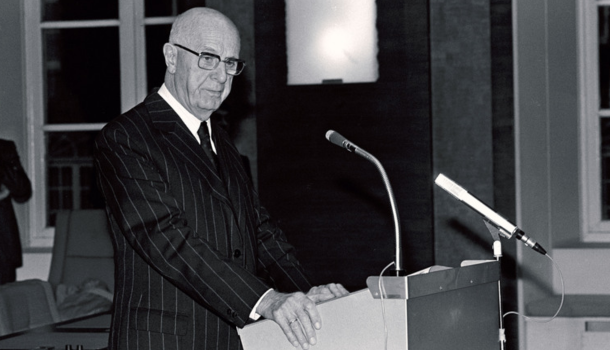Format: moderated roundtable discussion under the Chatham House Rule (light lunch will be served)
Participants: (by invitation only) – diplomats, academics, policy experts
Language: English
Organisers: Minsk Dialogue Council on International Relations and Centre for Humanitarian Dialogue (HD)
Venue: Crowne Plaza Minsk Hotel (13 Kirov street), King Room, 6th floor
In December 1967, NATO adopted the “Report of the Council on the Future Tasks of the Alliance”, which became commonly known as the Harmel Report. Initiated by the then Minister of Foreign Affairs of Belgium Pierre Harmel, it famously brough about a paradigm shift in the Alliance’s approach to comprehensive security by laying the foundations of a security framework that combined military and political-diplomatic tools. The report argued in favour of a dual-track policy of deterrence and détente vis-à-vis the Warsaw Pact. Around the same time, the Soviet Union also revisited some conceptual underpinnings of its foreign and security policy and embraced the doctrine of “peaceful co-existence” with the West. Those developments on both sides of the Iron Curtain helped to significantly reduce escalation risks and paved the way for a more controlled type of confrontation that all sides benefitted from.
Today’s realities in Europe and, more broadly, across Eurasia may appear incomparably different from the actuality of the 1960s. A major war continues to rage in the middle of the continent that has made nearly all previously effective security institutions in Europe defunct, whereas increasing tensions in some other parts of the world are resulting in intractible global instability. As a consequence, deterrence has become the key concept that is driving the security policies of nearly all European and Eurasian actors, and little space seems to be left for any alternative security policies.
However, a closer analytical comparison between the present situation in Europe and that in the mid-20th century can arguably reveal interesting and instructive historical parallels. If anything, today, as well as back then, an exclusive reliance on military deterrence cannot ensure sustainable and long-term security for anyone, because it only drives an escalatory dynamic known as the “security dilemma”. Therefore, instead of security and stability, all sides will end up facing a continuous spiral of military risks and socio-economic burden. And the only way to stop the security spiral and minimize risks, like it was the case in the 1960-1970s, is to find a method of combining military deterrence with diplomatic dialogue.
Even though the political realities of today do not seem conducive to such a conclusion, the single most important historical takeaway from the Harmel Report might be that it is in everyone’s interest to undertake “active and constant preparation for the time when fruitful discussions of these complex questions may be possible bilaterally or multilaterally”. The event will operate on this analytical premise in oder to faciliate an open and internationally inclusive startegic discussion about the possibility of arriving at a new Harmel moment in European security.
Speakers
David Gorman, Regional Director – Eurasia, Centre for Humanitarian Dialogue (HD)
Vladimir Orlov, Founding Director, PIR Centre; Founding President, Trialogue Club International
Tengiz Pkhaladze, Senior Fellow, European Centre for International Political Economy (ECIPE); Professor, Georgian Institute of Public Affairs; former advisor to the President of Georgia
Richard Sakwa, Professor, University of Kent
Sándor Seremet, Senior Reseaerch Fellow, Hungarian Institute of International Affairs
Martin Sajdik, Senior Advisor, Centre for Humanitarian Dialogue (HD)
Dzianis Melyantsou, Programme Coordinator, Minsk Dialogue Council on International Relations
Moderator
Yauheni Preiherman, Founder and Director, Minsk Dialogue Council on International Relations


